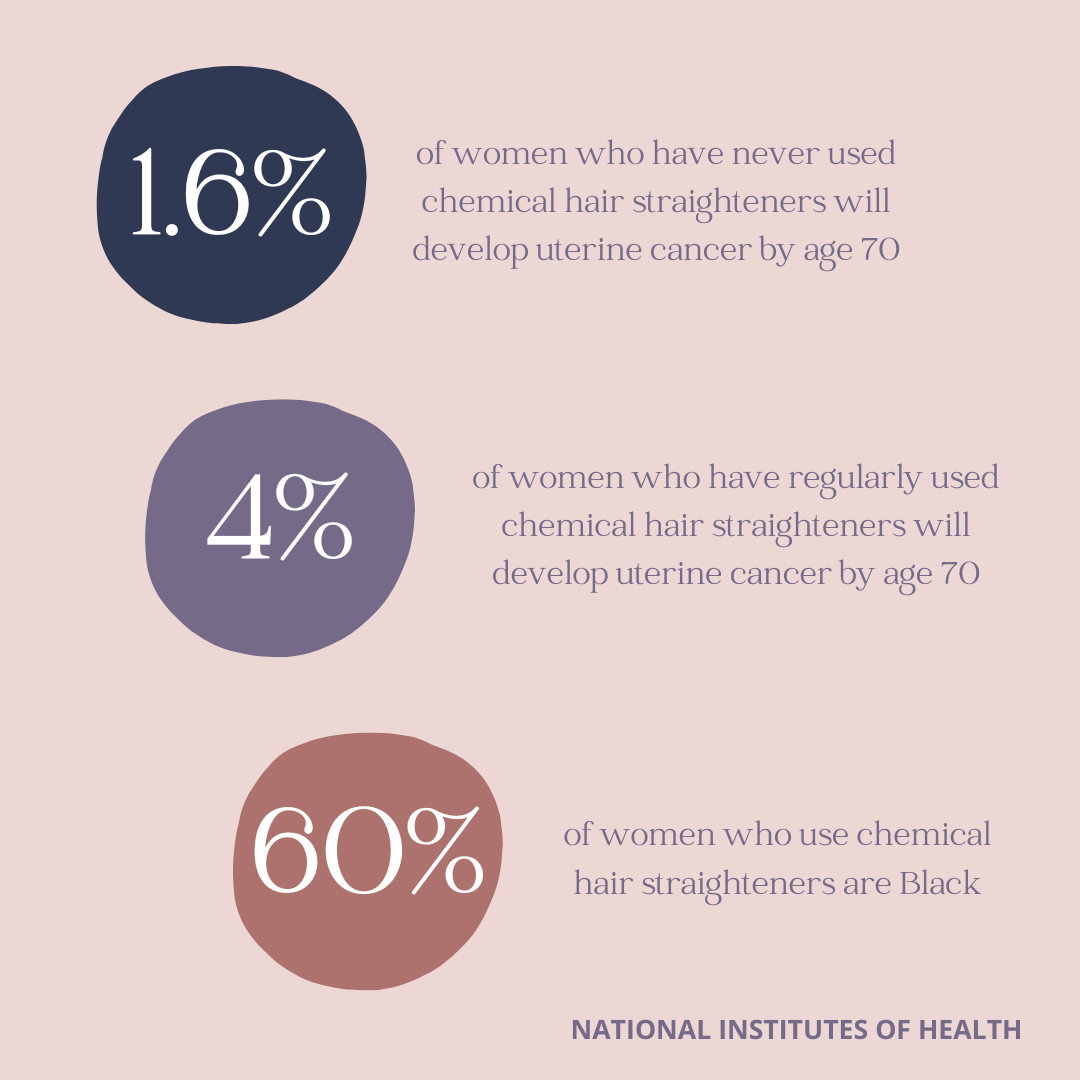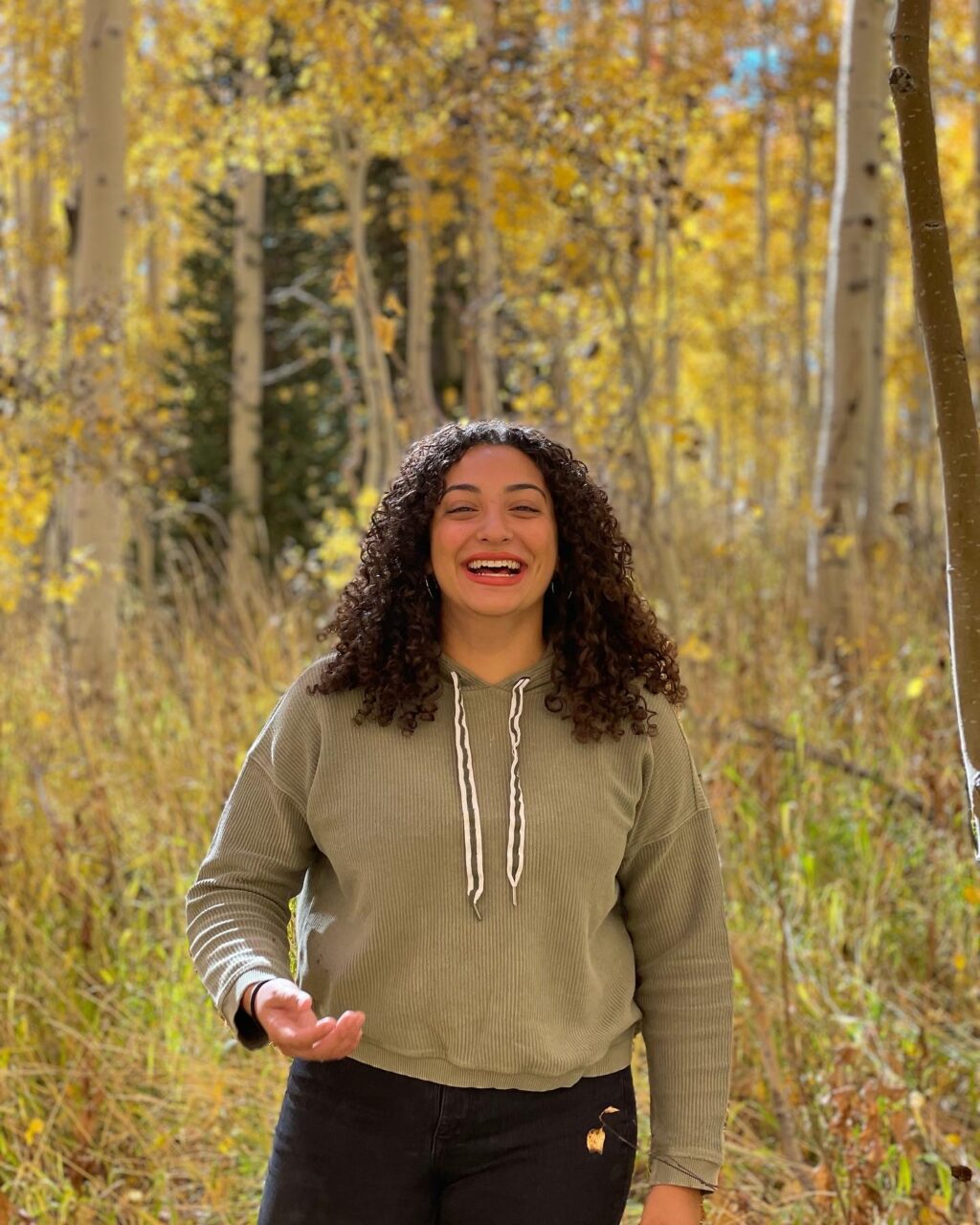A study published by the National Institute of Health has found a correlation between chemicals used in hair-straightening treatments and uterine cancer, and some BYU students say treatments remain popular because of the societal pressure to conform.

The study, published last month, followed 33,497 U.S. women ages 35–74 for almost 11 years. The report said that during that time, 378 of the women were diagnosed with uterine cancer.
The researchers found that of those cases, women who reported using chemical hair-straightening products more than four times per year were more than twice as likely to go on to develop uterine cancer as those who did not use the products.
Kallee Hinton, a recent graduate of Paul Mitchell The School Provo, said there are three common methods of straightening hair. The flat-ironing method, which is the most common, uses heated plates to press down on sections of hair to straighten it.
Second, the hot comb method uses a heated metal comb to brush through sections of hair and straighten them.
The third technique, often called a chemical relaxer, uses chemicals instead of heat to straighten hair.
“A chemical relaxer is a technique you would use if you have extra curly or wavy hair that you would want straightened for a longer period of time, rather than putting heat on your hair every day,” Hinton said.
According to the NIH study, most chemical relaxers contain chemicals like parabens, bisphenol A, metals and formaldehyde, which could be contributing to the increased cancer risk.
Hinton said she learned of some potential risks associated with chemicals in hair relaxers while in cosmetology school. She said she was taught that some people could have allergic reactions to the chemicals, but there are barrier creams cosmetologists use to prevent adverse reactions. However, she said the chemical treatments have other potential effects.
“If it’s not done correctly, or by a professional, it could lead to burning the scalp or even hair loss,” she said. “They are strong chemicals, so you just have to be careful and know what you are doing to avoid those situations.”

According to BYU student Flor Woodard, who has naturally curly hair, people may turn to chemical relaxers because of beauty standards that idealize straight hair.
“I grew up in North Carolina, and down there the beauty standard was straight blonde hair,” she said. “As a really young girl, I wanted straight hair.”
Woodard said she learned to embrace and love her hair after moving to New Jersey, which has a more diverse population, and seeing more people with hair like hers. She said these people helped her realize beauty does not necessarily mean being the same as everybody else.
BYU student Elise Mackley, who also has naturally curly hair, said she straightened her hair with an iron for years because she did not know how to style curly hair.
“It takes so much more work and knowledge to take care of curly hair,” she said.
Mackley added that the struggle is likely harder for people of color because they have less representation in media.
“I’m white, so it’s easier for me to appreciate my beauty because I see it represented more often,” she said.
Woodard said another cultural factor pressuring women with curly hair to get chemical relaxers is the common misconception that natural hair is unprofessional. She said that growing up, people would use derogatory terms like “nappy” to describe curly hair.
“People say, ‘You can’t have an Afro at work, it’s unprofessional,'” Woodard said. “Well, why not? That’s my hair.”
According to the website for the Official CROWN Act, Creating a Respectful and Open World for Natural Hair, discrimination based on hairstyle is a common experience in America, particularly for Black women. The 2019 CROWN Research Study for Women reported that Black women were 80% more likely to change their natural hair to meet social norms or expectations at work, and Black women were 1.5 times more likely to be sent home from the workplace because of their hair.
BYU student Kayla Sherald grew up in a predominantly African-American community in Brooklyn, New York. As a Black woman herself, she said she started getting her hair relaxed when she was five years old, the same as most of her peers.
Sherald said some of her peers did not use relaxers, and she always admired their hair. She said she never realized her hair would look like that if she did not use relaxers.
“Never having seen my natural hair, I grew up with the presumption that my ‘real’ hair was meant to be kept away and only some people had hair good enough to be natural,” she said.
For Sherald, the process of using the chemical relaxer was always a painful one. She said her mother would apply it from a box she would purchase from the local beauty store and apply it at home in their kitchen, which is how most of her friends had their hair relaxed, too.
Sherald said the process took about an hour, and she was always excited for it to be over because it burned her scalp.
Sherald said it can be difficult as a minority at BYU to feel like she belongs, and there is continued pressure to straighten her hair.
“No one has to say it directly to know what the ideal is,” she said. “As a convert to the Church, the art spoke for itself. As a student, the faculty speaks for itself. As a member, the leadership speaks for itself.”
Sherald said she has straightened her hair during her time at BYU because she felt that if she conformed, she would be more accepted. She said she has learned to appreciate her worth and that of other students.
“You have the take the reins and take a firm stand in your destiny,” she said.




